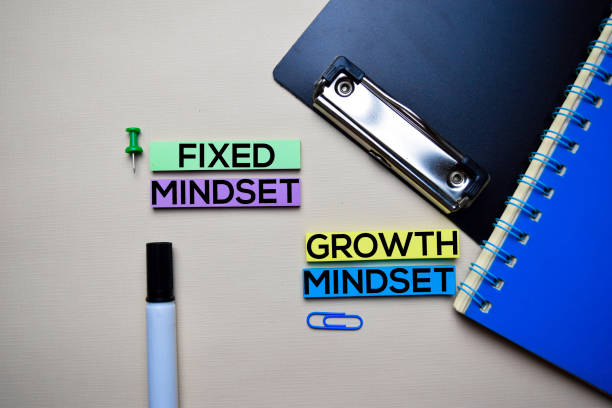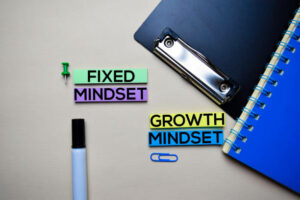
Change Your Mindset to Improve Your Relationships
“Becoming is better than being.”—Carol Dweck
Mindset is a way of thinking.

I watched Lisa Nichol’s show recently, and she had as her guest Shawn Stevenson, nutritionist, and bestselling author.
I was so impressed with Shawn’s presentation that I was moved to write this article based on what he claims are our two most valuable assets: our mind (not our brain) and our health.
The brain and the mind are not the same things.
As discussed on researchgate.net, “The brain is an organ, but the mind isn’t. The brain is the physical place where the mind resides.
“The mind is the manifestation of thought, perception, emotion, determination, memory, and imagination that takes place within the brain.
“The mind is often used to refer especially to the thought processes of reason.”
Thus, the brain and the mind are different types of entities—physical and mental.
What Is Your Mindset?
Mindset: “An established set of attitudes held by someone.”—Oxford English Dictionary
One of the foremost published authorities on mindset is Carol S. Dweck, Ph.D., who describes two different mindsets: A Fixed Mindset and a Growth Mindset.
In Dr. Dweck’s book, Mindset: The New Psychology of Success: How We Can Learn to Fulfill Our Potential, she says those with a fixed mindset “believe their basic qualities, like their intelligence or talent, are simply fixed traits…that talent alone creates success—without effort.”
However, those with a growth mindset “believe that their basic abilities developed through dedication and hard work…this view creates a love of learning and a resilience that is essential for great accomplishment.”
According to Dr. Dweck, “virtually all great people have had these [growth mindset] qualities.”
I have devoted my business website to health and wellness topics, especially as this relates to senior women.
So how can you, dear reader, benefit your health and well-being if you have what Dr. Dweck calls a “growth mindset”?
Can You Change Your Mindset?
Let me begin with Martha’s story (as told in my book, A Family Caregiver’s Guide: 7 Secrets to Convert Negative Triggers to Positive Emotions):
“I have been caring for Mom and Dad for nearly twelve years now. Six years have been 24/7 living with Mom and Dad until he died two years ago. We all know how stressful life is when caregiving. And it only builds up.
“Also, I have had anxiety/panic disorder for the last thirty years. Anyway, a close friend and I were chatting, and we were saying how we don’t feel ‘happy’ and haven’t felt so for a long time, but we don’t know why or what is missing.
“I thought it was because I’m a recovering addict/alcoholic—although I have been clean and sober for thirty years now—and that my personality is searching for an emotional ‘high’ and when I don’t feel it, I’m down.
“So, we decided to do some homework. Each night for a week, we were to make a list of things that made us happy during the day. So, I sat down in front of the computer to start my list.
“I sat there for a long time, and as I reviewed my day, nothing was coming to mind—until the first f*****g thing that popped into my head was, ‘I yelled at Mom today.’ And yes, that had made me happy. I am pathetic!”
Everybody wants to feel good—everybody!
It is without exception; it doesn’t matter what your race, color, creed, or religion is—you want to feel good.
Your mind and your body are closely linked.
Medical science recognizes that emotions such as fear, sorrow, envy, resentment, and hatred are responsible for most sicknesses; some even estimate that they account for 60 percent of all illnesses.
Martha’s mindset—her thoughts, attitude, and beliefs—about her circumstances caring for her parents were such that she felt angry, miserable, and lost.
And her behavior toward her mother reflected her attitude and mindset: “I yelled at Mom today. And yes, that made me happy.”
I don’t question that Martha loves her mother, but her actions and attitude do not reflect any warmth or kindness.
In considering her actions toward her mother, perhaps Martha would say, “That’s just the way I am!”
So, does Martha have a fixed mindset when it comes to the qualities she possesses as her mother’s caregiver?
Can Martha change her mindset, and if so, how?
Learn to Get in the Right Mindset
The question for Martha becomes does she want to act differently toward her mother? If so, she must say to herself, “I will learn to be different.”
“I will learn to display the qualities of a successful and loving family caregiver.”
In other words, Martha must have a “growth mindset”; a mindset that allows her to learn how to foster positive relations with her mother.
Martha must learn to exhibit successful family caregiver qualities that include empathy, patience, and gratitude.
In showing empathy, Martha shows she understands her mother’s struggle with her illness. She has, in effect, fellow feeling in her mother’s pain and discomfort; she has walked in her mother’s shoes, so to speak.
Unfortunately, empathy is not a universal response to the suffering of others. Some don’t care deeply about other people or their well-being.
Surely, Martha would not yell at her mother if she felt and showed empathy.
When it comes to patience, Martha has been caring for her mother for nearly twelve years; she’s tired and exhausted.
Martha’s nerves are understandably frayed; she’s annoyed and frustrated.
But Martha can learn the value of patience.
Scientists say that learning to be patient is good for your health; you’ll be a happier person.
If Martha learns how to be patient with her circumstances, she’ll find she has less anger, less stress, and less worry.
Patience: “The ability to accept delay, trouble, or suffering without becoming angry or upset.”—Oxford English Dictionary
A final quality I would suggest Martha learn to express to have better relations with her mother is gratitude.
Oftentimes, we don’t understand the value of what we have. We no longer recognize the good that comes our way. We’re closed off to others’ needs.
Showing gratitude often removes this feeling.
Also, gratitude is a powerful human emotion with scientifically-proven benefits to our health, including our brains.
Science shows that grateful people sleep better, improve their self-esteem, and reduce stress, among many other benefits.
In fact, a Google search on “gratitude” reveals numerous science-based findings on the benefits of gratitude.
Adopt a Growth Mindset
In this article, I’ve shared just one example of the value of a growth mindset versus a fixed mindset.
When it comes to interpersonal relationships, people often wish things could be different.
In the example of “Martha” discussed in this article, she was angry and frustrated due to her caregiving responsibilities.
In fact, Martha was so resentful that she couldn’t think of one positive thing about her situation that she could share with a friend; everything was negative.
Yelling at her mother is what made Martha happy.
Imagine!
But all is not lost.
No matter your current mindset, you can adopt and nurture a growth mindset, but you have to work.
Just knowing about the two mindsets discussed in this article should give you something to think about.
You can choose (or learn) to have a growth mindset that believes that you have changeable traits; that intelligence and talent are not fixed or unchangeable.
With your growth mindset, you believe that your abilities can be strengthened and developed if you work at them.
Think how much better your relationships will be for your efforts.
Begin today and adopt a growth mindset!
“What lies behind us and what lies before us are tiny matters compared to what lies within us.”—Ralph Waldo Emerson




